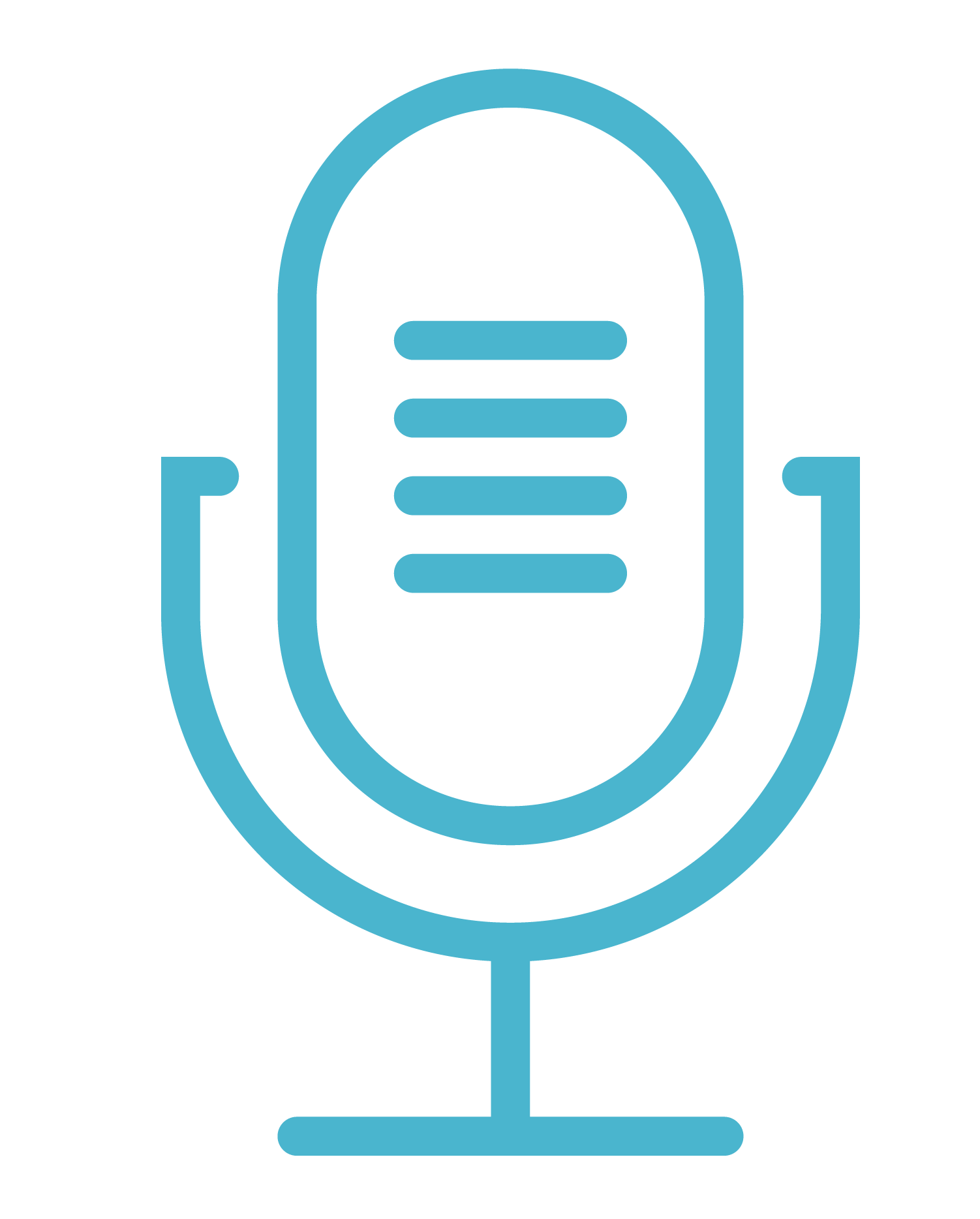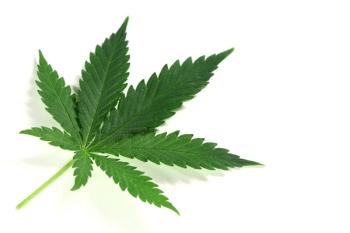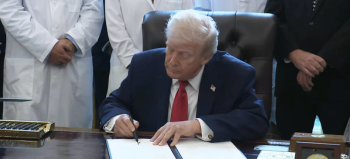
Empowerment through Education, Part VI: Cannabis Courses and Outreach

Join us for Part VI of this multipart interview series as the co-founders of Cannabis Patients Pacific Northwest describe the topics covered in their cannabis education, both inside and outside the classroom.
In Part VI, co-founders of
Catch up on past interviews or watch the whole series!
Read a transcription of the interview.
Madeline Colli: Could you tell us a little bit more about the courses that you were offering at the Clark College Science of Medical Cannabis?
David Benedicktus: At Clark College? Yeah. The design was to fit into the Lifelong Learning programming. And they really like classes that were five weeks long, two hours each time. They used the model that I developed in the Aging of the Brain series in how to talk to your physicians so they'll listen and how to appeal insurance claims and stuff like that. I would present the issues and then have people come in from the community. So we would talk about the history of cannabis—normalized it—we would talk about the human history of cannabis, how it was used in burial procedures, how it was, surprise, surprise, one of the anointing oils of the disciples and things like that, and how in 350 BCE people were buried with cannabis underneath their heads as part of this ritual process. And we have been experimenting with for years and how, depending on the environment it’s growing in, different terpenes are produced from it. Here is a little class on plant biology. What do terpenes do? Well, they attract insects and repel insects, right? That's what the plant is doing. But human being said, “Oh, look, the animals are eating this and they're not dying, so maybe I'll give it a try.” And then liked it and they carried it with them wherever they went, right from Delta Valley, from Asia, all the way into Europe, and the Vikings used it for rope and also the seeds were for long distance travel on ships. The seeds were a great source for antioxidants. So they just munched on those. And then the hemp-growing in the United States, how it was part of the Pharmacopoeia up until the 1920s. And so people were just saying, “look, that makes sense. Yeah. It's part of our herbal plant-based medicine.” And then we talk about the how it became illegal, the marijuana tax, and Harry Anslinger who included marijuana like heroin. And of course then it became racial. Cannabis that was being prescribed by your pharmacist and elixirs and smoking and whatever was different than the cannabis that the Mexicans were bringing over across the border, and the jazz musicians used it and it was “corrupting white women” and I mean, there was posters everywhere. I mean, it was totally so flagrantly racist, that propaganda, and then the drug wars came in. And even though the Shafer Commission—in the class we cover Nixon and the Shafer Commission. This conservative governor, Schafer, that Nixon hired came back and said, “there was no public policy reason to do this.” But Nixon wanted to a law-and-order kind of issue and so he demonized cannabis, along with LSD, and the hippies and the Blacks who were using it, I mean, it's right there. So we show that in the class just get that out of the way.
Now let's go to the science. And then we've talked about the science and what's a registered controlled trial, a clinical trial, what is a human trial and stuff like that. And list all the cannabis products that have been tested for in those different categories. What Dedi Mieri is doing in Israel, what we're doing United States, and Sue Sisley and the PTSD studies. Then we go into the body systems, and I would switch over to my holistic, prevention-wellness hat and we go through neurological diseases, GI problems, seizures, autism, childhood autism, all those categories. And we would tell the class, “you can email us privately any concerns that you have for your own personal thing and we can talk about in class, but I'll send the literature on that.” So it was really a personalized approach. And even the 10-hour class wasn't enough for people to get enough of that.
But it was wonderful to bring in dispensary owners, growers, producers, and have them talk about it and show pictures of how it's grown and what they do. And talk about pesticides versus organic processes. And then connect people up to resources in the community, following, as I said, a cadre of people together to go out to dispensary visits. We did one grow operation. We actually went into a grow operation and showed from clones all the way at the beginning, all the way to the end to the drying and into making RSOs and stuff like that. So we'd love to get back to doing all of that if people ever get comfortable with being around each other post-COVID. But that's the model that we're using in the classes. The other thing about this is, again, going back to low-income and disabled people and access, the state of Washington prior to the pandemic was subsidizing low-income people to take classes at community college. They would actually pay the tuition once a quarter. And a lot of our disabled people in Clark County were using that scholarship to come in to the cannabis class. And that went away in 2021, in 2020. So people weren’t signing up for the class. We did an online zoom class, but the state funding went away for that. I mean it wasn't much, like they had their own cost savings and stuff. So we're trying to figure out some kind of online approach that we can use to get some maybe some funding from other sources.
Jeremy Robbins: I think that was also an idea behind the creation of the nonprofit is that we can offer courses at a reduced or no fee. Whereas if we are offering them through the community college there always has to be an associated fee.
Benedicktus: The prices kept going up from $89 was the first price for five weeks/10 hours, then it went up to $95 and $99, now it’s $115. And people who are on a limited income, fixed income, like a senior, can’t afford that. So that's again the benefit of the nonprofit and we can have classes online and people can just call us up specifically for guidance. We don't offer prescriptions, but we give people information they can discuss with their physician, especially cancer patients.
The hospice programs in southwest Washington won't allow cannabis in their hospice. I was giving a friend of mine, who was in hospice, and myself and family members were bringing in cannabis products, but the nurses got a hold of them and gave them back to us and wouldn’t let him use it.
Colli: You guys are doing great work.
Benedicktus: Thank you.
Colli: A lot of roadblocks, but you guys are doing great work.
Benedicktus: Yeah, it's good. We have the passion for it. And it's wonderful to have the feedback form people on how valuable that is. Especially for veterans and seniors that are on all these different medications that they can reduce, especially pain medication profiles.
Colli: My next question is if you guys do any outreach to support groups.
Robbins: Yes, yeah, we do. So of course I've got a bunch of spinal cord injury and the related. So here in Washington, there's something called the Here and Now Project. There's the Oregon Spinal Cord Injury Connection. Those are both in person and online. I presented “Cannabis and Spinal Cord Injury” for both of those groups. This last year was for the Here and Now Project and the year before it was for the Oregon spinal cord injury group. I'm involved with the Paralyzed Veterans of America, I'm a lifelong member of that. And we do, you know, support and talks. Some Autism Spectrum [ASD] groups. I do some consulting and a lot of conversation around ASD and what products work for those.
And then the CBD stores around town, we have quite a few brick and mortar shops. American Shaman was one of them. And we like to go in and educate folks about CBD specifically and with the legalization of the Farm Bill it really helped bolster our program. But you know, it's just cannabis. It just is not psychoactive, but it does a lot of cool stuff. Veterinarians and pet stores, I happen to know a couple of vets that are associated with Oregon Oregon State University, and so we've done some CBD-type talks with them. And then David has a host of other groups that he deals with will tell you about.
Benedicktus: Patients come who are in support groups. And the first one that asked us to come in was a Parkinson's support group and we've done four of those. As I mentioned, it was kind of surreal going into medical center that I had come to the ER for, or my children had been treated there. And I actually went to that same hospital when I had my knee replacement. The Parkinson’s support group met regularly at Legacy Health, and we had about 30 people in the room and talked about CBD and THC and Parkinson's, and the titration schedule for beginning of Parkinson's versus late stage, and the tremors, and the locked-in syndrome. And it was really interesting to discover that people were using a lot of products, but they wanted more information about when Parkinson progressed. Because it doesn't heal the Parkinson's syndrome, but it reduces the symptoms and increases the quality of life for people. People were talking about how they would vape a little bit for before bed, it would help them with the tremors and things like that. And then of course the folks that had the really freezing, locked-in tremor combination that the RSO products were really helpful for and just within minutes stop the tremors. They can talk, they can hold a cup, they can walk without a cane, things like that. So all of that wonderful improvement in lifestyle and accessibility and being able to normalize your life is quite profound.
Also, with dementia support groups, I have a personal connection there. My mother-in-law had to move out of her—after her husband passed away, she'd been living by herself, she had to move into assisted living, and then she gradually got dementia and progressed, so that they were having to give her very heavy duty psychiatric medications to manage her anxiety, which she didn't like, didn't respond well to. So I went to her gerontologist, had an hour and a half meeting with her, and talked about CBD and some of the literature on that. Just CBD, not the THC because I figured that in the assisted living that the THC wouldn't fly but maybe just CBD would. And she wrote a prescription for it. I went over to my CBD store, purchased a couple of bottles, took it over the assisted living and they said, “no we can't have that here.” Because even though they do eyedrops and vitamins and everything else that the physician orders, they wouldn't do the CBD even though I had the physician order because the federal guidelines—they were afraid that Medicare would come after them. Which they don’t, by the way, Medicare says, “we're not interested in doing that at all, coming after people, go ahead and use it,” but assisted livings don't want to pull it so I had to go over there four times a week and dose her in the morning and I did that for six months, four times a week—fortunately she lived close by. And it really, really, really helped, but then we finally had her move into—when she got worse—we had to move in to her house for the last six months. And then working with the physician I said, “we don't want to use the Risperdal, the anti-psychotic and the really heavy drugs, that just puts her out completely. What about adding the THC, CBD combination?” So we were able to use that for months until the very end. So dementia support groups, a lot of interest in that, especially for the agitation. People with mild cognitive impairment, understanding the low-dose CBD and THC is neuro protective and can even reverse cognitive impairment.
Hospice, cancer work, the veterans group—so I just put out a mailing to 15 assisted livings here in Clark County now that we're out of the shadow of the pandemic. We have for veterans’ organizations and I joined the local American Legion so they can get to know me and I can start talking about this stuff and turn them on to the “Unprescribed” documentary.
So 55 and older communities, people are still moving around, they're playing tennis, they’ve got a golf course right to the middle of their community and stuff. And they want to be active stay active and stuff and stay home. So, there's a movement called Villages throughout the nation that is helping people stay in their houses by getting volunteers in the houses rather than having them have to go. So they created a nonprofit called Villages and that helps people, and you buy in for a membership—it’s pretty low cost—and then organizes a volunteer network to take you to appointments or to have people come to your home, take a light bulb or whatever. And doing presentations for those folks too. The senior market, people are very interested and are willing to try it, especially those folks who remember the 60s and say, “Well, maybe I'll give it another shot.” So there's a lot of receptivity there in the support group communities, patient support groups.
Colli: Do you have any anecdotes you'd like to share that normally don't have the opportunity to?
Benedicktus: Well, I just did the one about my mother in law. The other is just that when we were doing the support groups in the CBD store in their lobby on Wednesday evenings, we’d have people come up and just tell us amazing stories. Like, fibromyalgia is such a horrible syndrome, it has all these different symptoms and huge pain syndrome for people that they can't get control over and they’re often on opiate medications. It’s kind of tricky, so if they're taking an opioid then they have to be drug tested to make sure they're not taking cannabis or something like that. Which is really tricky for us. So they’d stop taking opiates and take cannabis and take the other medications for other the other syndromes that are part of the fibromyalgia. So those are a couple of couple stories that I have.
Newsletter
Unlock the latest breakthroughs in cannabis science—subscribe now to get expert insights, research, and industry updates delivered to your inbox.




